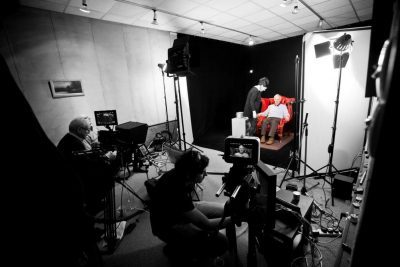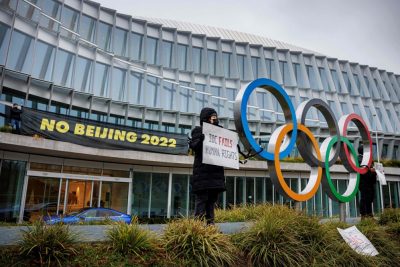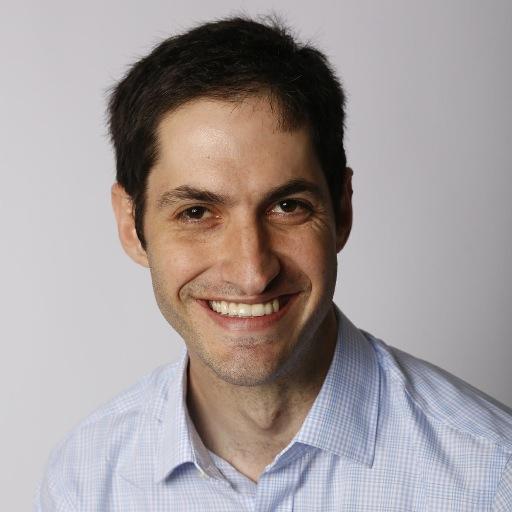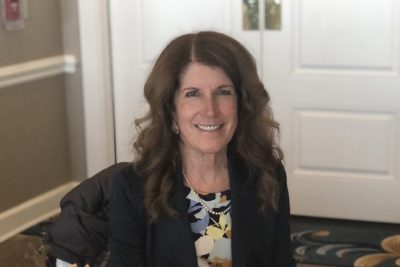UConn Today (Neag School alumna and Connecticut Education Association’s president, Kate Dias, is quoted)
Celebrating 50 Years of PRLACC
UConn 360 (Neag School alumna and PRLACC director Fany Hannon is interviewed)
Holocaust Education Evolves as Number of Survivors Declines
UConn Today (Research on Holocaust education, led by Alan Marcus, is featured)
Pandemic-Related School Closings Likely to Have Far-Reaching Effects on Child Well-Being
The Conversation (Sandra Chafouleas pens commentary about impact of school closings on child well-being)
Education Secretary Miguel Cardona Says ‘Kids Can’t Suffer Anymore’ After Tumultuous Year
CNN (Bob Villanova is quoted about Neag School alumnus and U.S. Education Secretary Miguel Cardona)
Holocaust Education Evolves as Number of Survivors Declines
Editor’s Note: This article about Holocaust education, written by Mike Enright, originally appeared in UConn Today.
Like members of the Greatest Generation, living Holocaust survivors provide a powerful tool in teaching students about the past.

As the world moves further in time from the horrific events that took place in Europe during World War II, the number of survivors from the Holocaust continues to decline. Like the members of the Greatest Generation, living Holocaust survivors provide a uniquely effective tool in teaching students about the past, creating a challenge for educators as their numbers diminish.
It’s a particularly urgent challenge, as the Holocaust is one of the most common historic events used and cited by politicians, the media, and popular culture as a comparison to contemporary issues. The recent controversy over a Tennessee county school board’s removal of the graphic novel Maus from its eighth-grade curriculum illustrates how potent the Holocaust remains as a political subject, particularly within a school setting.
“When someone feels like their rights are being violated or the government is overstepping their bounds, they’ll cite the Holocaust, which is very dangerous,”
— Associate Professor Alan Marcus
Marcus recently was part of a team that produced a research study that was published in Holocaust Studies that examined the transition of Holocaust education from live to virtual survivor testimony. Marcus also wrote a column for The Conversation on the issue.
“The Holocaust is being trivialized today, and that undercuts the purpose of Holocaust education,” he says. “It’s not the way in which educators or historians want the Holocaust to be used.
“One of the powers of listening to a Holocaust survivor is that they can speak from their personal experiences, and that becomes a very powerful education tool,” he says. “At some point, we are not going to have survivors to speak. World War II is becoming an era of learned memory, as opposed to lived memory. We can learn about it, but we can no longer talk to people who were there.”
This transition has a particularly strong effect on Holocaust education and the effect that live survivor testimony has on students.
“Live testimony of Holocaust survivors bucks the trend in everything we know in education terms,” says Gary Mills, an associate professor of education at the University of Nottingham in the United Kingdom, who was another member of the research team. “Survivors might talk for an hour, an hour and a half, and young people normally get quite fidgety and distracted in a talk that long. There is something about survivor testimony where the students sit and are riveted and silent. It has a major impact on them.”
Marcus and Mills have a history of working on projects together dating back to 2012 when they were connected by colleagues. Marcus coordinates a study abroad program for UConn students at Nottingham, and Mills is an instructor in that program.
Holocaust museums around the United States and the world are trying to address the challenge by creating virtual interviews and presentations as a way to teach future generations of students.
“The power of people is really important, and Holocaust survivors help develop empathy, and empathy is a very important part of Holocaust education,” says Marcus. “As we shift from live survivors to virtual ones, we are going to be missing out on some of that power of people. But we are trying to get what we can capture, and have it stay as a trustworthy source even if the live person isn’t there.”
Holocaust education does need to be based on more than just survivor testimony – whether it be live or virtual.
“If you only study the Holocaust from the perspective of the survivors, you are missing out on a lot of context,” says Marcus. “As I am training teachers, one of the first things I do is talk to them about the different perspectives of the Holocaust. We tend to hear about survivors and victims and also the perpetrators. But, then we talk about the rescuers and the resistors. We explore about eight or nine different roles. There is a lot of curiosity about the perception that survivors didn’t fight back or run away. Survivors really represent a small percent of the people involved in the Holocaust, and are not necessarily representative of everything that happened during these events.”
Holocaust education has been a requirement in British school curriculums since the 1990s. A handful of states in the United States, including Connecticut, make it a required offering in K-12 schools.
“The Holocaust is a unique event that is really morally complex and a good learning opportunity,” says Marcus. “When the Connecticut state legislature voted on requiring Holocaust education, it was unanimous. That hardly ever happens. They heard from a Holocaust survivor and it made a big connection to the events of today. We have an increase in hate crimes and an increase in antisemitic acts. All that data was shared, and that’s what led to the unanimous vote. I think people see the power in the lessons of the Holocaust.”
Open Choice Expansion to Danbury and Norwalk is Hobbled by Suburban Buy-in
CT Examiner (Casey Cobb and Neag School alumna Christine Carver are quoted)
Meet the Researcher: Linda Pescatello, CAHNR
UConn Today (Neag School alumna Linda Pescatello is featured)
Olympic Athletes: 5 Questions America Needs to Ask About Athlete Activism
Editor’s Note: Sport management instructor and collaborator with the UConn Human Rights Institute Eli Wolff responds to questions about Olympic athlete activism, which originally appeared in UConn Today.

As the Winter Olympics begin in Beijing, questions are answered about how free athletes are to express their political and moral beliefs.
Athletes are frequently encouraged to stay silent when it comes to their political or moral beliefs. Six years ago, former San Francisco 49ers quarterback Colin Kaepernick chose to not stand during the national anthem at the start of NFL games to protest police brutality and racial inequity in the United States. He has not played a game of professional football since Jan. 1, 2017, only five months after his protest began.
Kaepernick was not the first, nor last, athlete to experience the sometimes fierce backlash that can occur when sports figures in the spotlight share their beliefs with the world. Today, the opening ceremonies of the 2022 Winter Olympic Games in Bejing, China will take place, in a climate of intense criticism directed at the host nation. China has been accused of persecuting Uyghur Muslims and Tibetans, cracking down on pro-democracy protests in Hong Kong, and threatening military conflict over the status of Taiwan. Athletes from around the world arriving in Beijing face a difficult decision over whether and when it’s appropriate to express their beliefs about these and other issues.
Recently, UConn Today spoke with Eli Wolff, Neag School of Education Sport Management instructor and sport and human rights expert. Wolff offers his perspective on how and why athletes are being silenced, what they can do to combat this, and ultimately, what needs to shift to allow athletes to perform their job, but also exercise their right to free expression.
In an ideal world, how could Olympic/Paralympic athletes use the world stage presented by the Games to share their personal/political beliefs in a respectful manner?
Olympic and Paralympic athletes can be encouraged and supported to use their platforms to express their personal and political beliefs for human rights and social justice. Olympic and Paralympic athletes must be provided their right to freedom of expression as outlined in Article 19 of the United Nations Declaration of Human Rights. Olympic and Paralympic athletes can express their views and beliefs in all forms and formats, including but not limited to verbal, written, and social media. Not all Olympic and Paralympic athletes will want to share their views, but those athletes that choose to do so, even if it is only a few, must be protected. Of course, Olympic and Paralympic athletes must not be tolerated for hate speech, but promoting human rights and social justice must be supported by the International Olympic Committee (IOC) and International Paralympic Committee (IPC), in line with Olympic and Paralympic values and the Olympic Charter Principles of Olympism.
Olympic and Paralympic athletes that are expressing their personal and political views and promoting human rights and social justice in connection with making the world a better place through sport must be celebrated rather than punished. Promoting human rights and social justice in and through sport is a positive contribution, and it is very good to engage in this way. The IOC and IPC must shift their perspective to recognize the human right to freedom of expression as a very positive contribution to the Olympic and Paralympic Movement and to the world.
Why and how are Olympic/Paralympic athletes continually forced to silence themselves to continue participating in their given sport?

Olympic and Paralympic athletes are currently discouraged by the IOC and IPC from speaking up about human rights and social justice topics and issues. Olympians and Paralympians are not technically and literally forced to stay silent, but there is a culture of power and control and policies, such as IOC Rule 50 and IPC Section 2.2, that limit and do not encourage the freedom of expression that is guaranteed in Article 19 of the United Nations Declaration of Human Rights. Ironically, the Olympic and Paralympic Movement has a partnership with the United Nations, and claims to promote human rights in the Olympic Charter, but rather than encouraging a holistic approach toward freedom of expression, Olympic and Paralympic athletes are limited in how and when they can speak and communicate their views and opinions. Olympians and Paralympians from the United States are protected by the United Sates Olympic and Paralympic Committee, but the IOC and the IPC still outline restrictions and limitations while at the Olympic and the Paralympic Games. Hopefully, soon the IOC and IPC will embrace freedom of expression as a complementary value to the Olympic and Paralympic values and the Olympic Charter Principles of Olympism.
In the 1968 Mexico City Olympics, American athletes Tommie Smith and John Carlos famously raised their fists in a Black Power salute during the playing of the US national anthem during the medal ceremony. How has activism among athletes evolved since then?
Athlete activism has come to the forefront of sport in the last 10 years, and particularly in the last two years since the murder of George Floyd. Very much inspired by John Carlos, Tommie Smith, Muhammad Ali, and others, we are seeing athlete activism as a more prominent topic and area of exploration. When I established the Athletes for Human Rights project with several colleagues in 2006, and when I wrote “Playing and Protesting: Sport as a Vehicle for Social Change” with Peter Kaufman in 2010, there was very little activity and engagement, and now there is a diversity and tapestry of athlete activism around the world. We are seeing athlete activism across topics and issues and utilizing a variety of tactics and approaches. Some athlete activism is in the form of social and political protest, some athlete activism is through writing and creative expression, some athlete activism is through education and knowledge sharing, and some athlete activism is through service, philanthropy, and community engagement. The spectrum of athlete activism is broad and deep and is very much emerging as a central and important part of sports culture nationally and globally.
What is the latest on the responses of the International Olympic Committee and International Paralympic Committee to calls that their rules around political demonstrations at the Games be amended?
The IOC and IPC have indicated that they will review IOC Rule 50 and IPC Section 2.2 after Beijing 2022. The IOC has communicated that it will share an IOC human rights strategy following Beijing. During Tokyo 2021, over 150 experts and athletes signed a letter to the IOC and IPC regarding IOC Rule 50 and IPC Section 2.2. Leading up to Beijing 2020, there are several initiatives, including a Human Rights Watch organized call to action, and a call led by the Uyghur Human Rights Project, that are promoting human rights and freedom of expression. Hopefully, following Beijing 2022 there will be organized and coordinated efforts to follow up with the IOC and IPC. Perhaps, as we wrote on Dec. 10, 2021, for Human Rights Day, there can also be an initiative by the UN Human Rights Council to establish Special Procedures experts on sport and human rights.
What is the impact of the US, Canada, UK, and Australia not sending political dignitaries to the Winter Olympics? Is that sending the right message about China’s policies in Xijiang?
It is a significant symbolic statement. It is definitely very important for governments to take this position. Most importantly, it will hopefully impact efforts and work following Beijing 2022.
Eli A. Wolff is an instructor with the Neag School of Education’s Sport Management program at the University of Connecticut. Wolff, a collaborator with the UConn Human Rights Institute and Dodd Impact , also directs the Power of Sport Lab, a platform to fuel and magnify creativity, diversity, connection, and leadership through sport. Eli serves as a coordinator of the Athletes and Social Change forum and program with the Muhammad Ali Center. Wolff was a member of the United States Soccer Team in the 1996 and 2004 Paralympic Games. He is a graduate of Brown University and has an MA in Olympic Studies from the German Sport University of Cologne. In October, Wolff hosted a Neag School of Education panel with an Olympic athlete, a Paralympic athlete, and an expert in the field to discuss the topic of human rights and the Games.
Meet the Researcher: Linda Pescatello
Editor’s Note: This article about Neag School alumna and UConn Board of Trustees Distinguished Professor Linda Pescatello originally appeared on UConn Today.

Pescatello’s career as a researcher grew out of an enduring desire to learn coupled with her lifelong passion for physical activity and biology.
When Linda Pescatello ’77 (CLAS), ’81 MA, ’86 Ph.D. began her career as an exercise science researcher, the field was a marginal part of the medical sciences. Over the course of her decades-long commitment to continual learning and research, Pescatello’s work has risen to prominence, making her an internationally recognized expert in exercise prescription and post-exercise hypotension.
After graduating with a bachelor’s degree from UConn’s College of Liberal Arts and Sciences in 1977, Pescatello worked as a biology and chemistry teacher, and coach at Rockville High School.
One requirement for her to continue teaching was to earn a master’s degree, which she completed from the Neag School of Education in 1981. Pescatello returned to UConn to study exercise science, merging her interests in science and physical activity.
“Amongst all of us what’s very very clear is we have a love for sports and exercise,” Pescatello says.
Pescatello has a lifelong passion for physical activity, and played on UConn’s basketball, softball, and tennis teams as an undergraduate.
When Pescatello was working on her master’s degree in the late 1970s, the exercise science lab at UConn consisted of just a scale and a bicycle ergometer on the top floor of the Hawley Armory.
“Just to see the expansion and use of exercise to improve many health outcomes has enabled the growth of our profession.”
— Linda Pescatello ’77 (CLAS), ’81 MA, ’86 Ph.D.
Pescatello stayed at UConn and earned her Ph.D. in exercise science in 1986. After managing the Department of Health Promotion at New Britain General Hospital for years, Pescatello returned to UConn as a professor in the Department of Kinesiology, first in the Neag School of Education, and t in the College of Agriculture, Health, and Natural Resources.
Since Pescatello’s time as a graduate student, the exercise science field has seen tremendous growth.
“Just to see the expansion and use of exercise to improve many health outcomes has enabled the growth of our profession,” Pescatello says.
Part of this expansion can be credited to the “exercise is medicine” movement which began in the early 1990s. This movement emphasizes how exercise can be used as part of treatment and prevention plans for a variety of conditions.
This movement was spearheaded by the American College of Sports Medicine (ACSM), the leading professional exercise science organization in the country.
Pescatello served as associate editor and senior editor for the ACSM guidelines for exercise testing and prescription. She also worked on the development of the 2018 activity guidelines report that served as the basis for the physical activity guidelines for Americans.
Career Making Discoveries
Early into her time at UConn, Pescatello worked on several major studies that led to landmark discoveries.
Pescatello worked with Paul Thompson at the Hartford Hospital to study how genetic polymorphisms affect the exercise training response. They were interested in seeing if people with different variations of the same gene would be better suited to certain kinds of exercise training to improve health outcomes. For example, a certain genotype may make someone’s blood pressure improve with endurance training, while another would lend itself to more improvements in muscle size and strength as a result of resistance strength training.
However, the researchers found no such thing. Instead, they discovered many genes account for a small amount of a person’s health outcome response to training.
“We found no single that could largely explain how we adapt to an exercise intervention,” Pescatello says. “That was an about-face in the field.”
Pescatello completed another study looking at the immediate effects of exercise on blood pressure. This now-well-known phenomenon called post-exercise hypotension that occurs when, after exercising, a person’s blood pressure decreases for the remainder of the day. In other ways, due to post-exercise hypotension, blood pressure is lower on the days we exercise than on days we don’t. This is especially important for individuals with hypertension (high blood pressure). This effect can last for hours and is an effective hypertension treatment strategy.
These findings launched Pescatello onto the international stage as an expert in post-exercise hypotension and drew attention to how effective exercise can be as lifestyle therapy.
Putting Research into Practice
Pescatello’s latest project helps put research on exercise prescription to use in clinical settings.
Pescatello has developed an algorithm known as P3EX. This decision support tool helps doctors and other health care professionals prescribe a customized exercise plan for patients at risk for cardiovascular disease.
“We have found that on the current market there is no exercise app that does what P3-EX does,” Pescatello says.
P3-EX is a unique tool that helps practitioners determine which risk factor to target to see the greatest benefit to the patient. For example, aerobic activity can help increase HDL or “good” cholesterol levels, whereas resistance or strength training is more effective for lowering LDL or “bad” cholesterol levels.
Pescatello is currently testing the tool’s feasibility in a large study. Three hundred professionals will use the tool in their practice and provide the research team with feedback. She is also interested in turning P3-EX into a mobile app with her research team.
Pescatello is also working on a study using Tai-Chi as an intervention for older adults with hypertension, led by postdoctoral researcher Yin Wu.
This work, supported by the Institute for Collaboration on Health, Intervention, and Policy (InCHIP) and the Brain Imaging Research Center (BIRC), will examine Tai-Chi’s impact on blood pressure and brain structural function, both of which are important risk factors for dementia.
In an upcoming interuniversity study, Pescatello will look at exercise and stress management for people taking prescription medication for chronic pain and who have opioid use disorder.
“You need to know your strengths and weaknesses and you build your team to complement those.”
— Linda Pescatello
“It’s another exciting area to develop strong collaborations with and we’ll see where it brings us,” Pescatello says.
This will not be the first time Pescatello has applied her expertise in exercise prescription to a daunting public health crisis. Pescatello worked with Nancy Petry at UConn Health to study the impact of exercise interventions for people with HIV and substance use disorder.
Pescatello says this kind of team science approach is becoming increasingly important.
“You need to know your strengths and weaknesses and you build your team to complement those,” Pescatello says.
An Impact for the Future
As the U.S. faces an aging population and increasing rates of obesity and diabetes, exercise will become an even more important part of regular health care, Pescatello says.
“Exercise is almost going to become a fundamental skillset for all of us because of the way we live our lives and the increase in sedentary and sitting time,” Pescatello says.
To address this growing challenge, another arm of Pescatello’s research focuses on how to keep people active through collaborations with clinical psychology researchers.
“I think exercise professionals also have contributed to the high amounts of physical inactivity in our country because we often don’t combine exercise interventions with behavioral strategies to increase exercise adherence,” Pescatello says.
As the challenges Pescatello works to solve have only grown over the years, so has her commitment to research and teaching the next generation.
Research, for Pescatello, calls for curiosity and thinking independently, something she imparts on her students through an experiential learning and problem-solving approach.
“The students are learning current, state-of the art knowledge in our teaching and I take pride in that,” Pescatello says.
Pescatello has been a critical force in growing the curriculum at UConn focused on the evidence-based health benefits of exercise.
“Leaving that as a growing venture to the university is something I can give back,” Pescatello says.
Pescatello says her intrinsic desire to always learn more and the impact her work and the students she has mentored has keep her motivated.
“I do feel that the research I’ve been involved with has positively impacted the way people lead their lives which is ultimately the motivation for staying in the field as long as I have,” Pescatello says.
Neag School alumna Linda Pescatello was previously a kinesiology faculty member in the Neag School of Education. The Department of Kinesiology originally was housed in the Neag School of Education before moving over to the College of Agriculture, Health, and Natural Resources.
Previous Stories:
- Brazilian Visiting Scholar in Kinesiology Paves Way for Future Collaborations with UConn
- Widely Used Exercise Guidelines Edited by UConn Fitness Expert
- Neag School of Education Hosts 2013 Commencement
- Neag School’s Dr. Pescatello Provides Insight Into Genomics Role On Exercise Performance
- Neag School Professor Receives National Award
